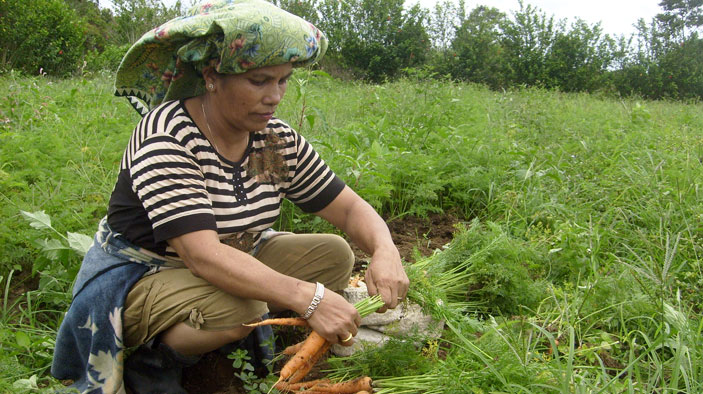Indonesia—Agribusiness Market and Support Activity (AMARTA)
Client: U.S. Agency for International Development
Duration: 2006-2009
Region: Asia and the Pacific
Country: Indonesia
Solutions: Economic Growth
Indonesian agribusiness is changing for the better, pursuing new supply chain models (such as hypermarkets), products, and business structures. Yet Indonesian agribusiness must become even more dynamic to keep pace with the rapid transformation of agribusiness globally. At issue is not merely the ability of Indonesian products to compete in export markets, but the ability of Indonesian agribusinesses to hold their own against foreign competition in the domestic market. AMARTA focused on improving productivity and quality, the keys to upgrading agribusiness value chains in Indonesia. High productivity and quality are essential in each link of the value chain, beginning with production: without high-quality primary food and fiber products at the start, no amount of downstream effort and expense will create a high-quality end product. To stimulate productivity throughout a value chain, the DAI team sought out “demanding customers”—forward-looking retailers, suppliers, and other intermediaries willing to pay a premium for quality—and transmitted price signals to every firm and farm in the value chain as an incentive to upgrade production and improve quality.

Sample Activities
- Implement public outreach, awareness, and education program that uses university curricula, national and regional conferences, alliances of agribusiness enterprises, training, and media campaigns to raise awareness of the benefits of market competition.
- Ensure that enterprises have the inputs, financing, technical know-how, information, and incentives they need to respond to market demand.
Select Results
- Brought more than 26,000 additional hectares under improved technologies or management practices.
- Assisted more than 575 producer organizations, water user associations, trade and business associations, and community-based organizations.
- Increased international exports of Sulawesi cocoa by 49 percent.
- Improved relationships between buyers and sellers—the direct linkages will provide farmers information on what crops to grow and the market demand for quality.
RELATED CONTENT:
Mozambique—Technical Assistance in Support of Trade and Development for Promove Comércio
The Technical Assistance in Support of Trade and Development in Promove Comércio project works to improve the trade and business environment in Mozambique.
Read More